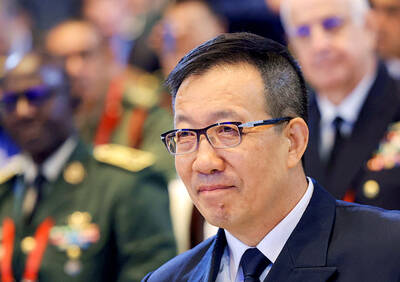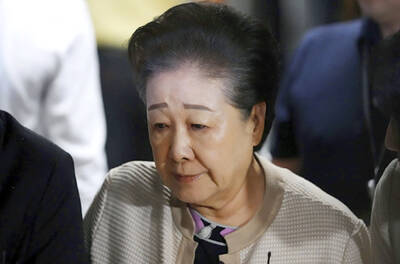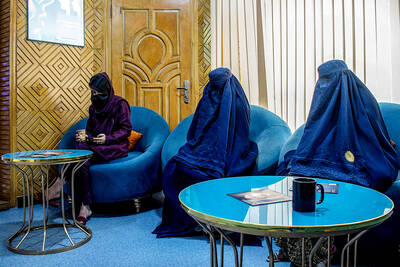Reading Japanese isn’t easy — even for the Japanese.
Take Japanese Prime Minister Taro Aso for example. He’s made so many public blunders that an opposition lawmaker tried to give him a reading test during a televised session of parliament.
The Japanese leader bungled the word for “frequent,” calling Japan-China exchanges “cumbersome” instead. Another time, he misread the word toshu (follow), saying fushu — or stench — and sounded as if he were saying government policy “stinks.”
While the media and Aso’s political rivals have been quick to heap ridicule, many Japanese have seen a bit more of themselves in Aso’s goofs than they would like to admit. Since his missteps, books designed to improve reading ability have become all the rage.
Aso’s nemesis is his mother tongue’s notoriously tricky mishmash of Chinese characters and its two sets of indigenous syllabaries.
Here is what he — and all Japanese — are up against.
Just reading the newspaper requires knowledge of about 2,000 characters. Another 50,000 are less common but useful to recognize.
And that’s just for starters.
Most characters have several different pronunciations depending on the context. For instance, the two characters in the prime minister’s surname can be read several ways. The first character, which means linen, is pronounced asa or ma. The second — meaning life, raw, or to occur or grow — can be pronounced nama, sei, sho or ki, to list just a few possibilities. And together, they are pronounced Aso (Ah-so).
During last month’s televised parliament session, opposition lawmaker Hajime Ishii chided Aso for his stumbles, saying: “We’d better discuss kanji.”
Then holding up a cardboard panel with a list of a dozen words, he asked: “Can you handle them?”
Aso refused to take the impromptu test, but Ishii didn’t back down.
“Today, those who can’t read kanji are scoffed at, and people are rushing to buy textbooks,” he said. “Perhaps you deserve credit for boosting their sales.”
Literacy-boosting books are selling briskly. One titled, Kanji that Look Readable but are Easily Misread, released a year ago, has sold more than 800,000 copies — most of them since Aso’s mistakes first got national attention in November, said Yukiko Sakita, a spokeswoman for Futami Shobo Publishing Co.
“We owe a lot to Prime Minister Aso,” she said. “Many people don’t want to make mistakes like his.”
The book has held the top spot in the weekly best-seller rankings compiled by Japan’s largest distributor, Tohan Co, since the beginning of this year, ahead of The Speeches of Barack Obama, which ranked second for weeks before falling to 17th this week.
“A text like this holding the No. 1 spot is extremely unusual,” said Tohan official Hiroki Tomatsu. “As far as the book ranking is concerned, Mr. Aso beat Mr. Obama.”

COMFORT WOMEN CLASH: Japan has strongly rejected South Korean court rulings ordering the government to provide reparations to Korean victims of sexual slavery The Japanese government yesterday defended its stance on wartime sexual slavery and described South Korean court rulings ordering Japanese compensation as violations of international law, after UN investigators criticized Tokyo for failing to ensure truth-finding and reparations for the victims. In its own response to UN human rights rapporteurs, South Korea called on Japan to “squarely face up to our painful history” and cited how Tokyo’s refusal to comply with court orders have denied the victims payment. The statements underscored how the two Asian US allies still hold key differences on the issue, even as they pause their on-and-off disputes over historical

BEIJING FORUM: ‘So-called freedom of navigation advocated by certain countries outside the region challenges the norms of international relations,’ the minister said Chinese Minister of National Defense Dong Jun (董軍) yesterday denounced “hegemonic logic and acts of bullying” during remarks at a Beijing forum that were full of thinly veiled references to the US. Organizers said that about 1,800 representatives from 100 countries, including political, military and academic leaders, were in Beijing for the Xiangshan Forum. The three-day event comes as China presents itself as a mediator of fraught global issues including the wars in Ukraine and Gaza. Addressing attendees at the opening ceremony, Dong warned of “new threats and challenges” now facing world peace. “While the themes of the times — peace and development —

BRIBERY ALLEGATIONS: A prosecutor said they considered the risk of Hak-ja Han tampering with evidence to be very high, which led them to seek the warrant South Korean prosecutors yesterday requested an arrest warrant for the leader of the Unification Church, Hak-ja Han, on allegations of bribery linked to the country’s former first lady and incitement to destroy evidence. The move came a day after the 82-year-old was questioned over her alleged role in bribing former first lady Kim Keon-hee and a lawmaker. Founded in 1954 by her late husband, Sun Myung Moon, the Unification Church has long been the subject of controversy and criticism, with its teachings centered on Moon’s role as the “second coming” and its mass weddings. Followers are derisively referred to as “Moonies.” However, the church’s

Decked out with fake crystal chandeliers and velvet sofas, cosmetic surgery clinics in Afghanistan’s capital are a world away from the austerity of Taliban rule, where Botox, lip filler and hair transplants reign. Despite the Taliban authorities’ strict theocratic rule, and prevailing conservatism and poverty in Afghanistan, the 20 or so clinics in Kabul have flourished since the end of decades of war in the country. Foreign doctors, especially from Turkey, travel to Kabul to train Afghans, who equally undertake internships in Istanbul, while equipment is imported from Asia or Europe. In the waiting rooms, the clientele is often well-off and includes men